FOOD FOR THOUGHTS: THE DIVERSE BODY/IES IN PERFORMING ARTS: D E A R S - Letters by Elena Zanzu
Dear impostor syndrome,
Are we together on this? We share
some fears, of disappointment, appropriation,
exposition, ridicule, and mockery.
These fears come with arrogance.
As if there was a pedestal from which
to fall. But what if there is not such a
pedestal? What if we – you and me, impostor
syndrome – remember humility?
I write from a white, abled, kind of normative-
skinny-tonic body. I also write
from a transgender and old – compared
to the standards of circus stages –
body. Just to speak body. I am visualising
Fabrizio Giannini literally coming
out of a wooden closet in the show
CAPAS. 1 Do I have to eternally come
out of closets? And, as Kosofsky 2 and
Butler 3 suggested, I don’t mean it as
if there was a binary closet where to
either be in or out, I am thinking more
of a Schrödinger’s closet, where to simultaneously
be in and out. 4
Impostor syndrome, no one writes
alone, it’s OK if you want to join. 5
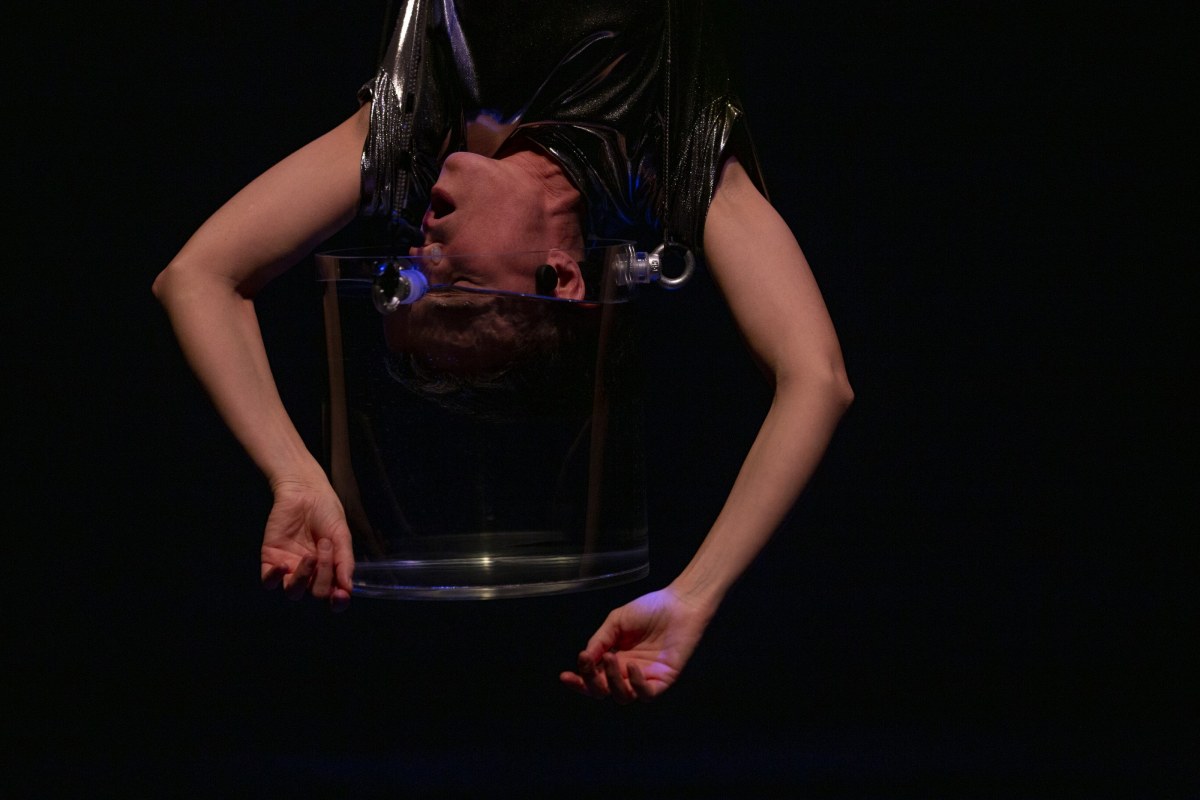
Dear past me,
In 2004, you went for the first time to
rue de la Folie Méricourt 68, to visit
the library of HorsLesMurs. 6 Because
when circus entered in your life it got
stuck and, studying philosophy, you
changed your master topic - from quantum
physics or AI - to circus.
Nineteen years have passed since. To
speak about (my) age in circus, is to
get out of a closet. And probably if I
can do it now, it is from the privilege
of being a creator/dramaturg/author/
director, who decides which bodies to
put on stage. It is not the same situation
when you are an interpreter, and
you need to be picked among other
[(young(er)] interpreters. You may
(need to) stay in the closet. The body
performing something else than the
heroic power of youth is a big taboo in
circus. Although there is also the other
extreme, when being visibly old is welcomed,
as an inspiration, an invitation
for the audience to think that someone
is “good for their age”.
Another expression of inspiration porn. 7
There is the need of belonging and the
fear of appropriating spaces. Some
time ago, for years, you collaborated in
the organisation of a trans cabaret. And
each year you would ask yourself if you
were “trans enough” to be there.
My pronouns are they/he in English,
and often he/him in other languages.
My body is actively receiving synthetic
hormones. My body is changing. My
body doesn’t fit in the two changing
rooms of the swimming pool where I
train apnea. My body doesn’t fit in most
(circus) stages. I (try to) generate spaces
where to welcome transformation and
in-betweenness. And I have (the privilege
of) passing 8: I do pass as young(er)
and - with some trick - I can pass as both
the official (cis)genders (or maybe not?).
Dear past me, I remember when you
were (trying to be) a trapezist. A swinging
trapeze artist in Montreal. Montreal
was the factory of swinging trapeze ar-
tists that would go to Cirque du Soleil
and other modern circuses. Some of
them would (need to) lie about their
age. Age was a shame, an inconvenience.
You listened to things such as “I will be
the best trapezist in the world” and you
felt like an alien. You were an alien. This
circus world around you wanted to be
the best. As in Ringling Bros and Barnum
& Baileys, it wanted to play in the
central ring. To play in the central ring,
there was only one body welcomed. It
was white, abled, skinny, young, and - if
swinging on a trapeze - feminine. You
were told that if you wanted to do swinging
trapeze, you had to have long hair
and put on a dress. You wore a wig.
You weren’t completely aware of it, but
now I tell you, you were doing drag! You
were a trapeze drag-queen. I remember
a conversation with a programmer. You
proposed a creative act. Silence. You
added a second option, more as an experiment:
“I also have an act of a woman
with long hair and a red dress”. He said
“Yes, I’d like that”.
Anyway, swinging trapeze gave you the
adrenaline you needed to reconnect
with your body, to resituate from a physicality,
to feel matter. The air grounded
you. So, dear past me, that’s fine.

Dear privilege,
In 2016 we, you and I, invited blind
dancer Joan Casaoliva to a residency.
He (contra)proposed that we first get
to know each other “in a place that
you don’t know, and I know”, where
I — sighted — would enter and leave
blindfolded.
I was starting the research project
A(h)! NO, rmalidades, which was intended
to explore some alterations in
the abilities of senses and mobility. It
was composed of three independent
residencies. The first one was around
sight. 9 I covered my eyes for seven
days, twenty-four hours a day. Several
people accompanied the process, being an "external vision" next to my
"internal vision" and taking care of a
safe(r) space where to take risks. 10 I
was interested in the movements that
this investigation would generate in me,
in the invited collaborators and in the
people that, intentionally or unintentionally,
I would meet during the week.
When the residency started, I quickly
realised that everything that I had not
previously prepared, would need to
be done differently. Sharing a look,
suddenly, for a week, ceased to be accessible.
I had to rely on other forms
of communication. Communicating
with me required extra effort on everyone's
part, not only on me, and often
people would react avoiding me. For
example, one day I was doing some
practice in the residency space, closed
door, when an external person entered.
I did not notice him, and he did
not try to communicate his presence
to me. He just stayed for a while, unnoticed.
He did not hide; he simply
didn’t make the extra effort needed to
communicate his presence and ask if
he could stay. Another day, while I was
walking down the street with Tiziana, a
person recognised me, looked at her
with a questioning mark, and then left
without disclosing his presence to me.
Often people talked about me to other
people, even though I was present.
For example, they would ask “how are
they?” instead of saying "how are you?".
Since I couldn't see people, people
pretended not to see me.
One day, I had clear images of what we
were doing in the studio, even though
my eyes were blindfolded all long. I
had the sensation of seeing the physical
contact, the bodies, the sweat,
the ropes, the texture of the clothes,
the temperature of the metal, the density
of the breath. I can still visualise it
clearly, and I dreamt of it several times.
Sometimes I was easily oriented, while
other times I didn't know where I was
at all. I got extremely tired. It was sensorial
fatigue. The whole body, muscles,
mind, emotions, and other senses were
trying to supply the sight to re-classify
the world according to my usual parameters.
I was trying to orient myself
and know where everything was. All my
energy was used for this. After a few
hours of stimulation, I needed to lay
down and “close my eyes”. Around the
fourth day, I began to feel emotionally
exhausted. At that moment I realised
that, maybe, I had to stop trying to
re-place everything in the same place
where my eyes had left it. Stop pretending
nothing was happening. Stop
controlling, systematising, and fixing
things. Stop wanting to know the colour
of the shirts I was wearing. And
stop wanting to know who was around
me. I had to welcome disorientation.
The fourth day was the hardest, but
it somehow allowed the passage from
the attempt to reproduce something
known, to the opening to other possibilities,
to other points of (non) view. I
had been trying to fit into a standard
narrative of how the world should be
experienced, without hindrance or failure.
However, if not seeing was meant
here to challenge the system (here,
the vision system) and not function
as a point in the system that needed
to be fixed, then failure needed to be
embraced. I felt that within not seeing
there was another space, where it was
not necessary to see. And within this
space not seeing itself was a force. Do
you remember it, dear privilege?
The fifth day, the last day in the studio,
I worked alone. I closed the door and
turned off all the lights. I tied myself
to a hoist system and began to move
between ground and air. The hoist itself
is a space that can create a safe
perimeter. This experience modified
my way of perceiving myself in space
and my way of moving. This was also
the last time I swung on a trapeze: I recognised
the farewell, la despedida.
At the end of the seventh day, dear
privilege, we opened our eyes again.
Seeing again made me dizzy, nauseated,
and shaking. I didn't know how
to re-embed the view in my references.
For the last week, that sense had become
unaccustomed to work and was giving
me information that I did not know
how to interpret.
Privilege, we have been able to choose
to temporarily live that experience
in the name of research, even slightly
funded. Our experience of being
blindfolded and playing with not seeing
for a week was of course a completely
different experience from being blind.
And being blind is not reducible to having
an absence of sight. And you, my
privilege, didn’t just come back when
I removed the patches from my eyes,
you were with me all the time. When I
perceived that I was being made invisible,
when I felt anger and exhaustion,
when I received a grant, when I had
insights, when I said goodbye to swinging,
when I walked on the street with
a white cane (yes, I even did that), you
were taking care of me. And so, you
are now that I am writing. And when
you take care of me, dear privilege, you
do it in such a way that can feel nice
to me, especially if I don’t notice you,
and I think that I am alone. Because
then I don’t notice that you are stealing
somewhere else what you give to me.
And that I am your accomplice. Dear
privilege, we have to talk way more.
After that, I went to Joan’s place. We
met in the street, and I blindfolded myself
before entering his place. There,
we improvised for hours. Then, still
blindfolded, he accompanied me outside
and said “yes, let’s do a residency
together”.
Dear accessibility,
In the performance EZ 11 the audience
receives an invitation for a person to
volunteer entering the stage. Without
too much spoiling now, the person will
be suspended and will make the scene
possible, with their (counter)weight
and with their engagement in a dialogue
with me.
I wanted the invitation to be open and
accessible. Dreaming of you, accessibility,
I realised that the question wasn’t
if something is accessible or not, but
to whom it is accessible and to whom
it is not. Which bodies I am inviting on
stage, and which I am not. A shift in
perspective. And then, being honest
about it. And then thinking about how
to communicate it, how to formulate
the invitation.
It is important to recognise limitations.
Some limitations are in the equipment
and the rigging systems. But the equipment
and the rigging systems are a
choice. Does accessibility for some,
inevitably means inaccessibility for
others? For example, strobe lights can
be perceived in a disturbing way from
someone who is epileptic, but they
could be a powerful tool for someone
deaf. And at the end, there are choices
to be made. And the need to abandon
the illusion of accessibility as a static
and absolute value.
Accessibility, you are also a negotiation
Dear exhaustion,
I was writing the last letter to care
when you manifested yourself claiming
yours. So, well, here I am, with you.
Years ago, during a residency I was
car(ry)ing, one person had a breakdown.
The day after we were expected to perform
a work in progress in a festival, but
she couldn’t. It felt like negotiating care.
How to take care of her, while taking
care of the rest of the team, and also
taking care of the project, and of the
festival, and of the audience who was
coming. And assuming that taking care
of myself would automatically come
afterward. My colleague was injured.
Sometimes injuries are not in the body.
Yet, they are very similar. How do we
take care of them? How do we communicate
them? Why is there such a shame
in mental suffering?
Exhaustion, you come to remind me to
live. Sometimes, I need a break. Yet sometimes
when I need a break, I don’t
take it. Then something inside says,
“please, stop, or I’ll make you do so”. I
negotiate, “I will take a break, yes, but
let me just finish this or that”. This negotiation
doesn’t always work. Sometimes
a part of me shuts down. And all
the other parts of what I call “me” need
to readjust. It is probably a mix of precarity,
western capitalism, workaholism
and (the closet of) neurodiversity that
makes me force my own boundaries. I
am more comfortable doing things that
are difficult for most, than doing some
(commonly considered) easy tasks. But
sometimes I don’t want to go out of
that closet, and I push a different me.
Exhaustion, you come to me with a sensation
of disgust toward something I
am supposed to do (such as answering
emails). I recognise in me two kinds of
reactions to that: letting go or fighting.
If I expect you, or if you let me negotiate
the timings, then I go for the first
response. I let go, grateful for the vivid
reminder of life. But if you surprise me,
I would probably be more attached to
function, and fight you.
Last week, I had a conversation with
Hèctor — who may join the EZ team —
about the role of the producer. There
is something in the role of the producer,
similar to the role of the dramaturg,
as both often tacitly assume the role
of a caregiver and a psychologist 12 of
a company. I can relate to the notes of
Sebastian Kann 13. Then, who takes care
of the producer? Hèctor, how would
you like to be taken care of?
Dear exhaustion, how do we take care
of you? I often invite the physical part
of you to my practice. You allow my
rational mind to rest, and other states
to manifest. Durational practices, repetition,
duration, repetition. If I am too
much in my thoughts, the exhaustion
of the body opens a window to fresh
air and let the excess of thoughts leave
the room. This kind of exhaustion is
precious to me.
How often do I not respect my (artistic)
boundaries? How can I forget the sustainability
of the practice? How often
do I forget to say no to work? Where
are the non-working hours? How is it
possible to work all the time and struggle
paying rent? Why doesn’t the invisible
work count? Is the Confucian proverb
“choose a job you love, and you
will never have to work a day in your
life” a trap? Where is the self-care?
Dear exhaustion, thank you for the reminders,
for the questions, for the care,
for the empathy, for the encouragement
to delegate, for the teaching of trust, for
the impulse to generate a community
and for the joy of saying no. Thank you
for bringing me to the sea and to watch
the stars at night. Thank you for the
hugs. And for the perspective. Thank
you for the dissociation, for the distance.
Thank you for the connection, for
the enthusiasm of remembering to live.
Dear exhaustion, let’s have a break
now.
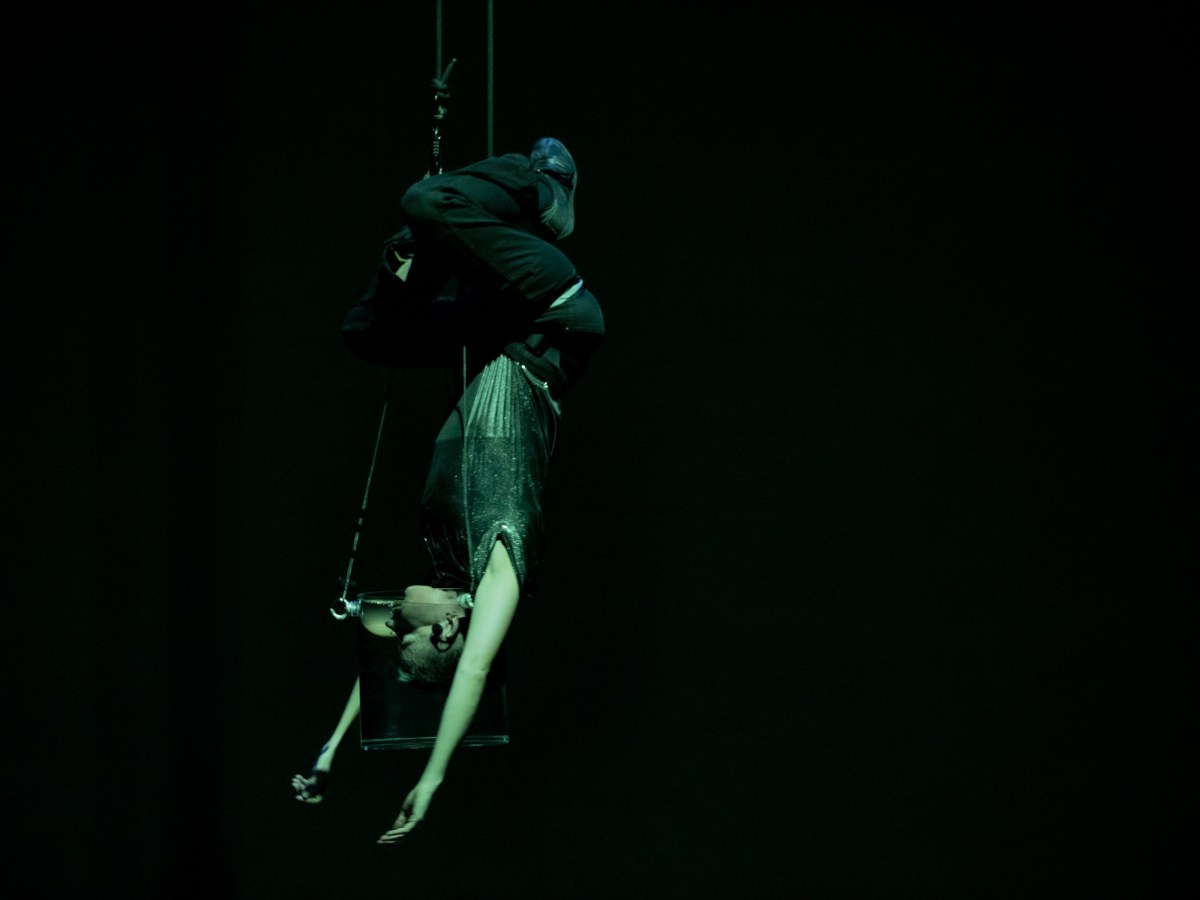
1 Compañía de circo “eia”, show CAPAS (2011-2015)
2 Kosofsky Sedwick Eve, Epistemology of the Closet (1990)
3 Butler Judith, “Imitation and Gender Insubordination” in The Lesbian and Gay Study Reader (1993)
4 The Schrödinger’s cat is a famous thought experiment by Nobel Prize - and sexual abuser - Erwin Schrödinger. It proposes to imagine that a cat in a
box could simultaneously be alive and dead until it is observed. The thought experiment was meant to criticise the Copenhagen interpretation of quantum
mechanics, by showing the paradox of a theory that thinks that a system exists in a superposition of states until it is observed.
5 Special thanks to Jose, Valentina, and Tay for reading a first draft of this text.
6 HorsLesMurs was the (French) National Centre for Circus and Street Arts until 2016, when, merging with the (French) National Centre of Theatre, it
became ARTCENA.
7 The expression “Inspiration Porn” was coined in 2012 by disability rights activist Stella Young. It refers to the objectification of one group of people (the
disabled) for the purpose of making them an inspiration to another group (the abled). It uses messages such as “If a disabled person can do it, you – abled –
for sure can”. The expression has later been extended to other discriminated groups.
8 “Passing” refers to being perceived as a gender you identify with, and you were not assigned at birth. It can also occasionally refer to being perceived as
a gender it is safer to perform (compared to being perceived as transgender). And, by extension, I am using the word here referring to gender and age.
9 A(h)! NO rmalidades was carried out by Elena Zanzu in 2017 within the framework of the Creative Europe programme De Mar a Mar, with residencies at
La Central del Circ and La Grainerie.
10 Especially Tiziana Masala, Sabrina Catalán, Oriol Escursell, Griselda Juncà.
11 EZ, performance by Elena Zanzu, premiered in 2022.
12 Cvejić Bojana, “The Ignorant Dramaturg” in Maska (2010).
13 Kann Sebastian, “Some queer notes on doing dramaturgy with love” in Thinking through Circus (2020).
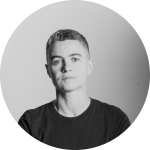
Elena Zanzu (they/he) is an author, performer, and researcher. They have a Degree in Circus Education from Montreal National Circus School, a Master’s in Philosophy from the University of Bologna and a Certificate in Circus Dramaturgy from CNAC. They give conferences, workshops and curate events around consent negotiation, artistic practices, circus dramaturgy, gender perspective, care. They teach gender perspectives in circus at the Autonomous University of Barcelona (UAB), they have been associated researcher with The Circus Dialogues (continued) and they are touring with their solo EZ, a circusnext laureate project.



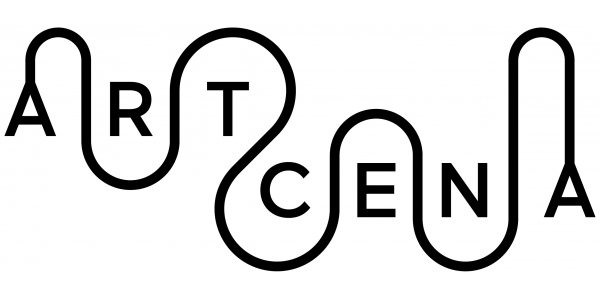

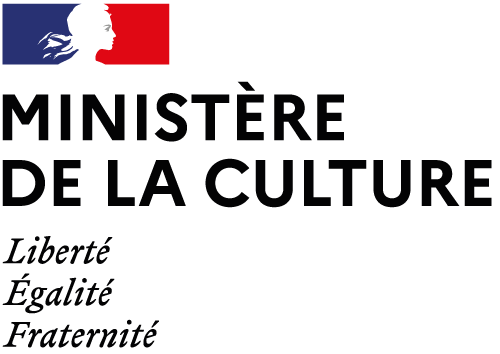
write us: infocircostrada@artcena.fr